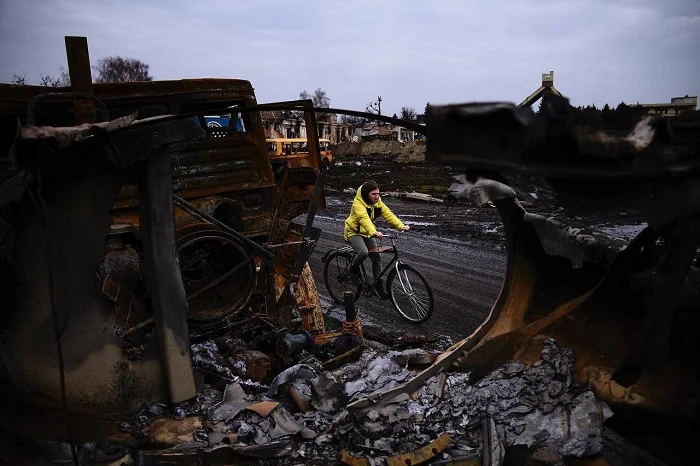Russia has slammed the decision of the United Nations Human Rights Council (UNHRC) to hold a special session on Thursday to address the deteriorating human rights situation in Ukraine "stemming from the Russian aggression".
The special session will be held at the Palais des Nations in Geneva and is being convened according to an official request submitted by Ukraine and supported so far by 53 States.
Moscow said on Tuesday that the special session highlights another anti-Russian approach of the “collective West” on the situation in Ukraine.
Late Tuesday, the UN General Assembly elected Czech Republic to the 47-member Human Rights Council following Russia's suspension from the body over the Ukraine conflict.
🔴 The @UN General Assembly has elected #CzechRepublic to the seat on the Human Rights Council vacated by #Russia in April 2022. The Czech Republic retains the seat until 31 December 2023.@CzechUNNY @CzechMFA pic.twitter.com/KqMjyidPer
— UN Human Rights Council (@UN_HRC) May 10, 2022
"As a justification for the need to hold it, Westerners cite the argument about the 'degradation of the situation on earth', as well as the fakes they themselves disseminated about the events in Bucha and Mariupol. At the same time, the crimes committed by the Ukrainian military and nationalists against their own civilian population are not taken into account," said Russian Foreign Ministry spokesperson Maria Zakharova.
The Kremlin insists that such attempts to impose a politicized and confrontational agenda on the UNHRC are "not surprising" and "fit perfectly into the traditional line of the Westerners" on the use of human rights in their own opportunistic interests.
"The fact that as a result the reputation of the Human Rights Council will be completely discredited, they do not care. It is important for them to realize the task set – to transform the HRC into a kind of 'closed club of genuine democracies', designed to set the rules of the game for the rest of the world, violations of which will be punished," Zakharova added.
She stated that Russia's arguments and explanations regarding the true goals of its 'special military operation' and the real situation on the ground are being completely ignored.
"Obviously, they will not be heard this time either. That is why the Russian delegation will not, by its presence, legitimize another biased political show in the form of a planned special session," said the spokesperson.
In order for a special session to be convened, the support of one-third of the 47 members of the Council – 16 or more – is required. Releasing a provisional list, the Council revealed that the request has so far been supported by 16 countries, including Finland, France, Gambia, Germany, Japan, Lithuania, Luxembourg, Marshall Islands, Mexico, Montenegro, Netherlands, Poland, Republic of Korea, Ukraine, United Kingdom and United States.
The request was also supported by 37 Observer States including Albania, Andorra, Austria, Belgium, Bosnia and Herzegovina, Bulgaria, Canada, Colombia, Costa Rica, Croatia, Cyprus, Czech Republic, Denmark, Estonia, Georgia, Greece, Guatemala, Hungary, Iceland, Ireland, Italy, Latvia, Liechtenstein, Malta, New Zealand, North Macedonia, Norway, Peru, Portugal, Republic of Moldova, Romania, Slovakia, Slovenia, Spain, Sweden, Switzerland and Turkey.
The list of signatories remains open up to the holding of the special session. This will be the 34th special session of the Council with the meeting being public and will also be webcast.
On March 3-4, during the 49th regular session, the Council held an urgent debate on the Russia-Ukraine conflict after which it decided to establish an independent international commission of inquiry to investigate all alleged violations of human rights "in the context of the Russian Federation’s aggression against Ukraine".
Also Read: Japan will 'take time' in banning Russian oil, to keep stake in Sakhalin project




















